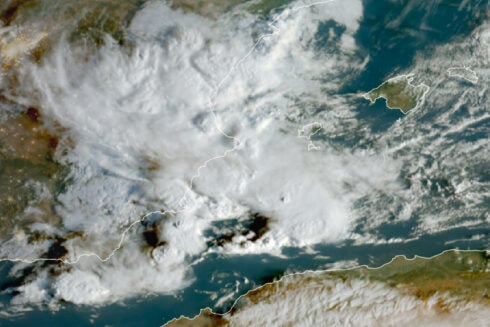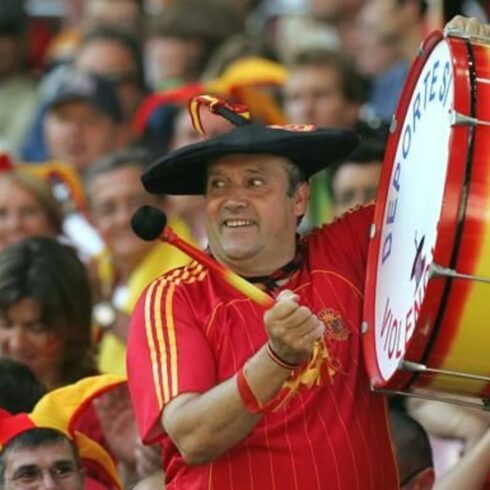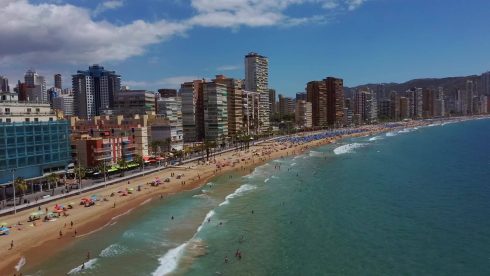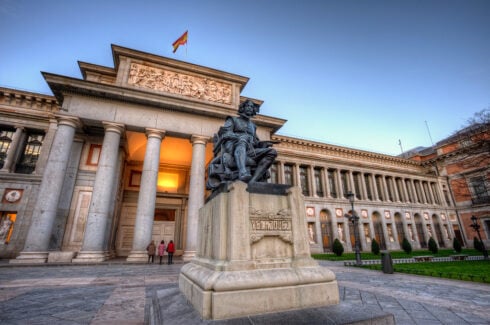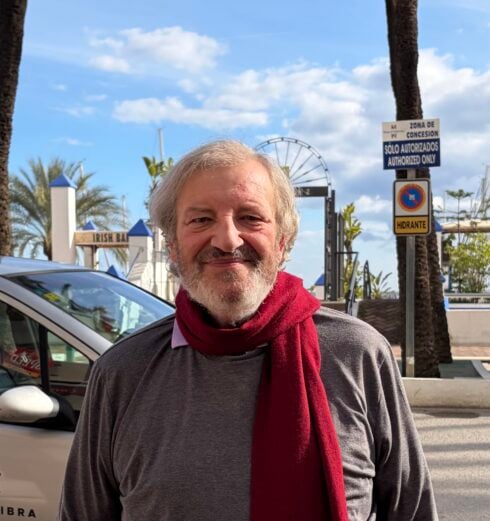AT least four people have been killed by the most extreme weather in Spain for 50 years.
The first reported victims were a South American couple who drowned in Mijas after their car was swept away by surging water.
The pair had just left church with another couple, who managed to be rescued, but not after one of them spent hours in the water before being pulled out by emergency services.
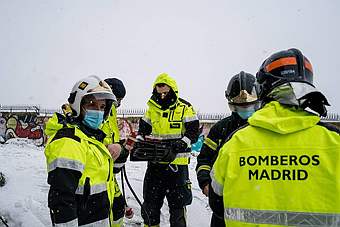
In nearby Fuengirola another car carrying five people, including two children, was also swept away by a rapid. They were thankfully rescued by firefighters.
On Saturday a man was found buried under the snow in the Madrid town of Zarzalejo, although the cause of his death has yet to be certified.
The fourth victim, believed to be homeless, froze to death on January 6 in Zaragoza, Catalunya.
It came as 27 provinces were on alert for severe snow and rainfall, covering all 17 autonomous regions.
The most extreme red warning for snow remains in place Sunday for Zaragoza, Teruel, Castellon and Tarragona.
King Felipe VI said on Saturday that he was in ‘permanent contact’ with national, regional and local authorities.
Madrid comes to a standstill
The capital city has come to a standstill due to snow in scenes not seen since 1971, according to weather agency AEMET.
Storm Filomena, as it has been dubbed, brought 33 litres of snow per square metre in just 24 hours, even forcing the airport to close and divert all its flights.
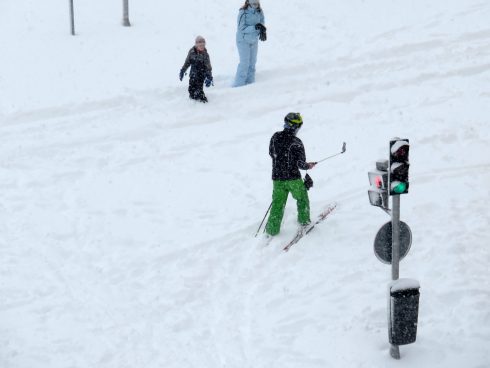
There were more than 1,000 incidents of people being trapped in cars, overwhelming emergency responders.
Residents were seen building snowmen and travelling around the city on skis, but some of the snowball fights became out of control when a group of 70 young people began targeting police officers.
Dozens of troublemakers began launching snowballs at a police car and uniformed officers on Plaza del Callao, leading to calls for reinforcements.
The Policia Nacional and municipal police came to their aid with riot gear, forming a human wall against the onslaught of snowballs. The youths had dispersed by 9pm.
Valencia under several weather alerts
To the east in Valencia, a red alert had been in place for extreme snowfall in inland areas and Castellon.
More than 50 roads had to be closed while the power supply was cut off in Benageber.
Meanwhile the coast was on yellow alert for rain and winds of up to 70km/hr.
Sunday is expected to bring force seven winds and waves of up to four metres.
At the time of writing, both Valencia and Alicante airports continued to receive Madrid’s diverted flights.
2,000 trucks stuck in Catalunya
In Catalunya there have been more than 500 reported incidents following strong winds, snow and dangerous coastal conditions.
Six main roads were forced to close as winds intensified over Saturday night.
Rail services were stopped in cities such as Reus and Lleida, including all connections to Madrid.
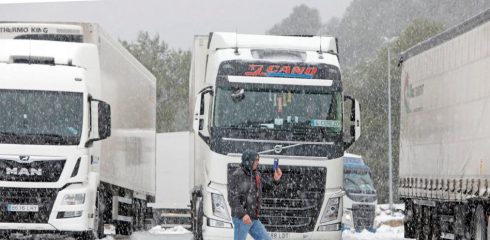
On motorways, some 2,000 trucks were stranded in service areas by the rough conditions, particularly in La Jonquera.
Despite being ordered to stop, some 200 penalties have been imposed on truckers for driving vehicles weighing more than 7.5 tonnes amid the severe weather.
Power cuts in Castilla La Mancha
The central region of Castilla La Mancha has become one of the most affected regions by Filomena.
Travel has been mostly paralysed in every part of the territory with hundreds of people having been stuck in their cars for hours.
Meanwhile 27,000 people have been left without electricity across Albacete, Cuenca, Guadalajara and Toledo.
It means thousands were left without heating in freezing temperatures, as work continued to fix the problem over Saturday night.
School’s out
Both Madrid and Castilla La Mancha have cancelled face-to-face teaching until Wednesday, affecting all schools and institutes.
The capital has also closed universities.
Travel chaos
According to the DGT, there have been more than 20,000km of roads affected by the severe weather.
Some 2,000km were completely closed while another 11,000 required vehicles to use chains.
Madrid was the most affected, with occupants of more than 200 cars having to be rescued on the M-40 motorway alone.
Drivers of 100 trucks also had to be rescued in Segovia, with heavy vehicles having to stop at services in much of the country.
Madrid airport remained closed on Saturday night after having to activate its winter emergency plan on Friday.
Train operator Renfe cancelled all trains leaving or arriving to the capital and Aragon on Saturday.
Further south, shipping companies Balearia and FRS suspended all routes between Ceuta and Algeciras for the third consecutive day due to the strong winds brought by Filomena.
Boots on the ground
Many regions became so overwhelmed that they were forced to call in for military assistance.
The Military Emergency Unit (UME) was called to Madrid to back up police operations and help in several rescue efforts. Almost 150 soldiers attended to more than 60 vehicles in the capital.
Troops were also sent to roads and highways in Andalucia, Extremadura and Valencia to help clear motorways and help rescue trapped drivers.
Defense Minister Margarita Robles said the army was preparing to assist with further problems on Sunday.
Click here to read more News from The Olive Press.


